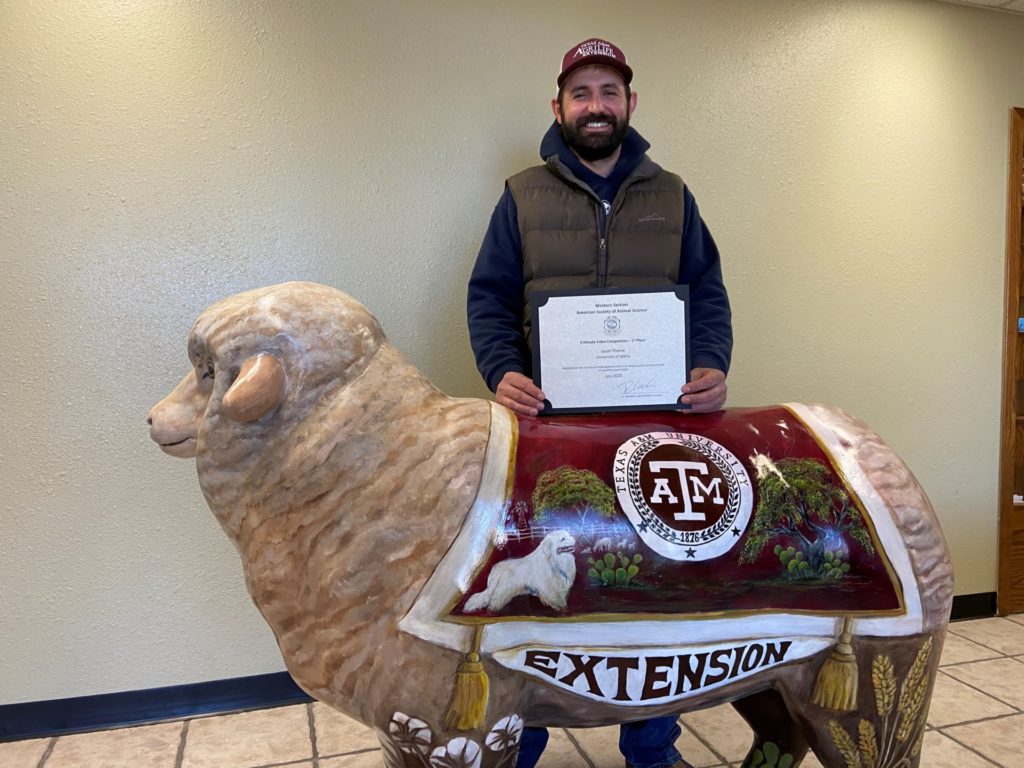Thorne recognized for sheep reproduction genetic research
American Society of Animal Science awards grant for work on litter multiples
The Texas A&M AgriLife Extension Service’s Jake Thorne, a sheep and goat associate based in San Angelo, has been recognized for his ongoing research on genomic marker technology for litter size in sheep.

“The sheep industry as a whole could be more productive and efficient with their use of labor and resources if they produced more lambs,” Thorne said about the goal of the research. The benefits vary “based on producers and different scenarios, but in general, a sheep that is having twins is optimal for production.”
The American Society of Animal Science, Western Section, awarded Thorne first place in the 3-minute thesis video competition category for his synopsis of his graduate thesis work on understanding the genetic impact on twinning rate. The 2020 awards were presented virtually at the society’s annual meeting.
Identifying industry needs
“My work is continuously trying to identify key areas of need for the sheep industry to be more productive as a whole,” Thorne said. “Reproduction is one of those key areas. Litter size is very hard to select for just by picking animals who have had one, two or three babies because of the impact environment has on this trait. A deep dive into the genetics of animals that have consistently outperformed their contemporaries is the best place to start and really the crux of my research.”
Thorne explained that he’s looking at alternative ways to measure reproduction, specifically genes related to reproduction, and then comparing that back to animals that are more prolific versus those that are not.
“Jake Thorne is an exceptional student with a unique skillset to comprehend research and translate the information to what’s important to the sheep or goat producer,” said Reid Redden, Ph.D., AgriLife Extension sheep and goat specialist and interim director of the Texas A&M AgriLife Research and Extension Center, San Angelo. “We are proud of his accomplishments and look for great things to come from his graduate program.”
Thorne is remotely working on his doctorate in animal physiology/genetics at the University of Idaho. He earned his bachelor’s in animal science and master’s in physiology of reproduction from Texas A&M University. Thorne previously served as a research associate for Texas A&M AgriLife Research in San Angelo for six years. He is now the coordinator of the AgriLife Fecal Egg Counting Lab in San Angelo.
The fecal lab utilizes parasite egg counts to determine which animals are genetically more resistant to parasites to help producers make informed breeding decisions.


